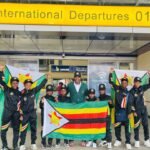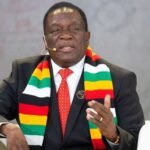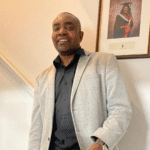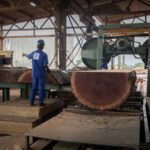A continent at a crossroads
As Africa pushes toward deeper integration through the African Continental Free Trade Area (AfCFTA) and discussions on an open-border policy, not everyone agrees on what continental unity should look like. While leaders talk about a single African market and free movement of people, others fear that such openness could worsen local unemployment and strain public services.
In South Africa, that debate has taken a confrontational turn through a movement called Operation Dudula. The organisation, which began as an anti-immigrant campaign, claims to defend South Africans against what it calls “uncontrolled immigration.” Critics, however, see it as a xenophobic movement that undermines the very ideals of African unity the continent is working to achieve.
Founded in Johannesburg, Operation Dudula accuses the government of allowing migrants, mainly from Zimbabwe, Mozambique and Lesotho, to take jobs and open businesses that should, in their view, belong to South Africans. Members have patrolled streets, inspected workplaces and even blocked patients from entering clinics if they cannot produce South African identity documents.
The group’s leader, Zandile Dabula, has defended its actions. “We want prioritisation of South Africans. Emergency care, yes, but if you are illegal you must be handed to law enforcers,” she told reporters. Dabula argues that South Africa’s limited resources cannot serve everyone, insisting that local citizens must come first.
What began as a social campaign has evolved into a political party planning to contest next year’s local government elections. Supporters claim Operation Dudula has improved access to clinics for South Africans. Some residents in areas such as Diepsloot say queues are shorter and medicines more available since the group began its activities.
Yet human-rights defenders call this justification dangerous. Fatima Hassan from the Health Justice Initiative says Dudula’s actions violate the constitution. “To have a group that is not sanctioned by the state deciding who gets treatment or entry is deeply problematic,” she said. “Unless government intervenes, it risks losing control of law and order.”
Ironically, some South Africans have also been turned away from clinics for lacking ID documents, an issue affecting more than 10% of the population. The constitution guarantees healthcare access to everyone within the country, regardless of nationality or immigration status.
South Africa is home to about 2.4 million migrants, roughly 4% of the population, according to official figures. Many come seeking work from neighbouring states that have long supplied migrant labour to South Africa’s mines, farms and factories. But with unemployment hovering above 30% and poverty widening, tensions have intensified in poor communities where locals and migrants compete for scarce opportunities.
The rise of Operation Dudula exposes a contradiction within Africa’s vision of unity. While the AfCFTA aims to promote free trade and movement across the continent, populist movements exploiting economic frustration threaten to pull nations apart.
Analysts warn that unless governments address inequality, job creation and corruption, anti-immigrant sentiment could spread beyond South Africa’s borders. “People lash out at foreigners when they feel abandoned by their leaders,” one political commentator said. “The solution lies not in division, but in inclusive growth and fair governance.”
As Africa dreams of seamless borders and shared prosperity, South Africa’s experience is a reminder that true unity requires more than treaties. It demands empathy, accountability, and a commitment to ensuring that no African feels like a foreigner on African soil.








